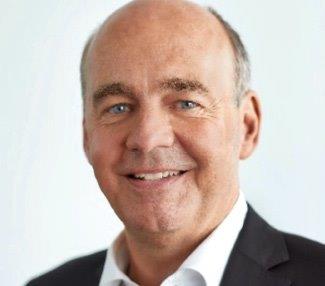
Bildnachweis: GEC.
Germany is making great efforts to support economic, environmental and social activities that help to drive and shape necessary transformations towards sustainability. Nevertheless, start-ups that try to be commercially successful by contributing to a carbon-neutral and sustainable industry don’t have it easy in Germany. To remedy this shortcoming, the Global Entrepreneurship Centre (GEC) was founded near Düsseldorf in mid-October. It helps companies settle successfully in the Rhenish coal mining areas. We spoke to its founder, Friedrich Barth.
Plattform Life Sciences: Mr Barth, how do you rate Germany’s efforts to promote start-ups?
Barth: The European Union is producing a substantial number of start-ups, but only 0.4% to 1.8% of them scale to become successful companies. The US scales three times as many in Silicon Valley alone as the entire EU. The German ecosystem has so far only ranked in the middle within the EU. According to these comparative values, Germany‘s overall efforts are far too small. As a result, many successful start-ups migrate away from Germany due to a lack of support. This cannot and must not continue.
What support would be necessary?
From the government’s side, a strategic approach would have to be pursued first. The start-ups demand more risk capital, access to labs, technical facilities and pilot sites as well as targeted scale-up support. At the same time, investors have to be increasingly interested in diversifying their portfolios in terms of sustainability and the circular economy. The greatest future market potentials are expected in these areas.
What do you mean exactly?
In my opinion, we need to focus on deep tech start-ups if Germany wants to keep its strong industrial base. However, many successful business models will be a combination of deep tech and AI solutions, robotics and digitalisation that will lead to open and collaborative innovations along new emerging value chains. The key economic sectors where these transformations will need to take place are most likely building and living, nutrition and agriculture, textile, mobility and transportation.
So why is investment in start-ups active in these fields so restrained?
There is a basic interest in investing in such start-ups, but investors are still too risk-averse, particularly in the deep tech sectors. They need appropriate collateral as to whether the business models really meet sustainability objectives and whether they are economically viable. For start-ups, this in turn means that they have to undergo even tougher due diligence than they have in the past. In order to meet investors’ requirements, the companies need individualized 360-degree scale-up support which is not yet offered in the market.
Investors would like to invest in pre-selected and vetted start-ups…
Yes, the scouting and screening of start-ups is increasingly being outsourced. Many investors trust external experts, especially when it comes to comprehensive sustainability assessment. Investors do not want to laboriously build up start-ups themselves, but take them over “investment-ready”.
How can Germany meet these new requirements?
In my opinion, this can be well illustrated by the example of the German federal state of North Rhine-Westphalia (NRW). It responds to these challenges with its new start-up era strategy, which fills the gap in European innovation systems in scaling start-ups to mature companies. They aim to attract teams of founders from all over Europe by building up an attractive ecosystem for them.
That sounds like an attempt to copy Silicon Valley.
We are still a long way from that, but indeed, this is a desirable goal. My colleagues and I founded the Global Entrepreneurship Centre (GEC) for this reason, located outside of Düsseldorf, as a complement of NRW’s innovation programme. The GEC is a scale-up centre that focusses on deep tech start-ups with a positive impact on the sustainability and climate agenda. The idea is to support the development of business models that do have the potential to set up a circular economy.
What exactly are the services of the GEC?
We assembled an experienced international team with extraordinary skills and networks that leverages best practices from Silicon Valley and the US National Science Foundation. We target start-ups directly after the seed phase (TRL 4/5) and carefully analyse them with the help of specialist experts. Selected start-ups receive a 2 x 3-month training schedule at first. When they have successfully completed this, they will be further supported with a customised scale-up programme that can be worth up to EUR 200,000 and further guidance. The whole service includes 15 months of individualised coaching and support in the areas of circularity and sustainability, IP and legal, finance and funding, market and marketing, process scaling, IT and workflow management, HR and recruiting and soft landing. In this way, we help entrepreneurs to address not only their core competencies, but also business challenges and barriers to growth.
What is your vision with the GEC?
The GEC is a basis for an innovation super-cluster of new deep tech companies on sustainability, climate neutrality and circularity and SusTech companies in the Rhenish coal mining area. The supercluster will be a new composite site of SusTech companies which have been successfully scaled by the GEC. The super-cluster represents the new way of working, producing and consuming and demonstrates concrete solutions to transform our societies.
Mr Barth, thank you for the interview.
The interview was conducted by Urs Moesenfechtel.
ABOUT THE INTERVIEWEE
Friedrich Barth is the founder and CEO of the Global Entrepreneurship Centre GEC.
Das Interview erschien zuerst in der Ausgabe 4/2021 der Plattform Life Sciences „Circular Bioeconomy„.
Autor/Autorin
Urs Moesenfechtel, M.A., ist seit 2021 Redaktionsleiter der GoingPublic Media AG - Plattform Life Sciences und für die Themenfelder Biotechnologie und Bioökonomie zuständig. Zuvor war er u.a. als Wissenschaftsredakteur für mehrere Forschungseinrichtungen tätig.


